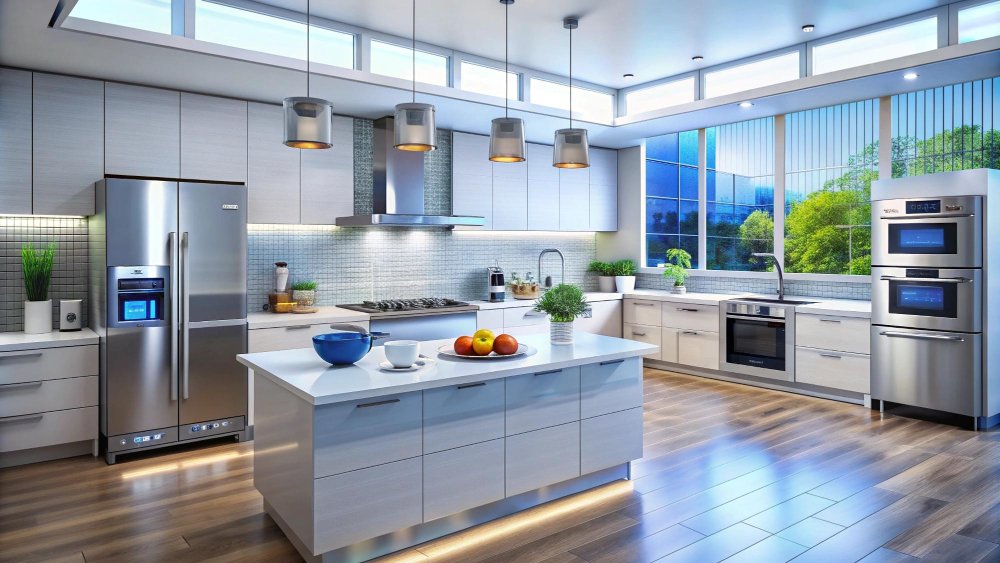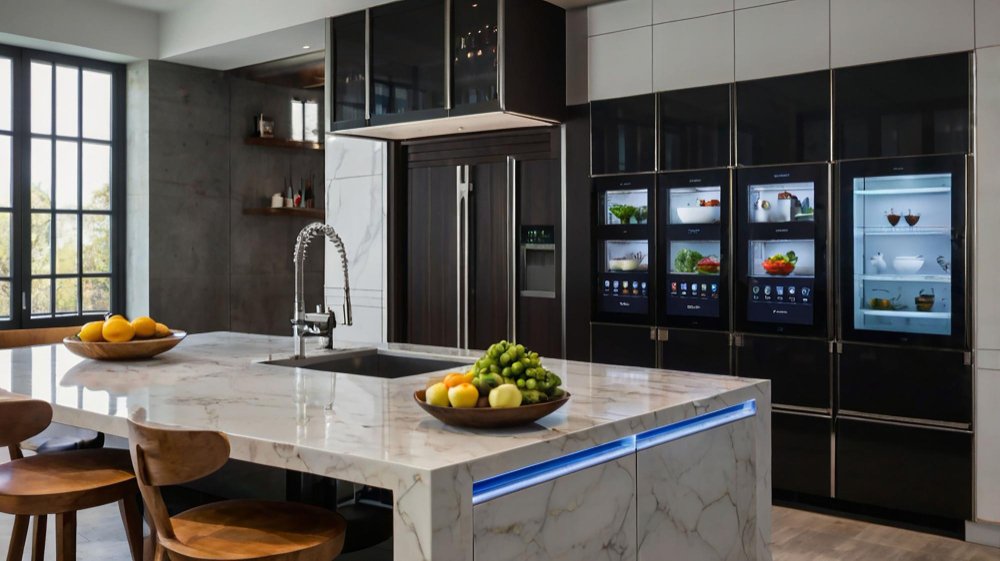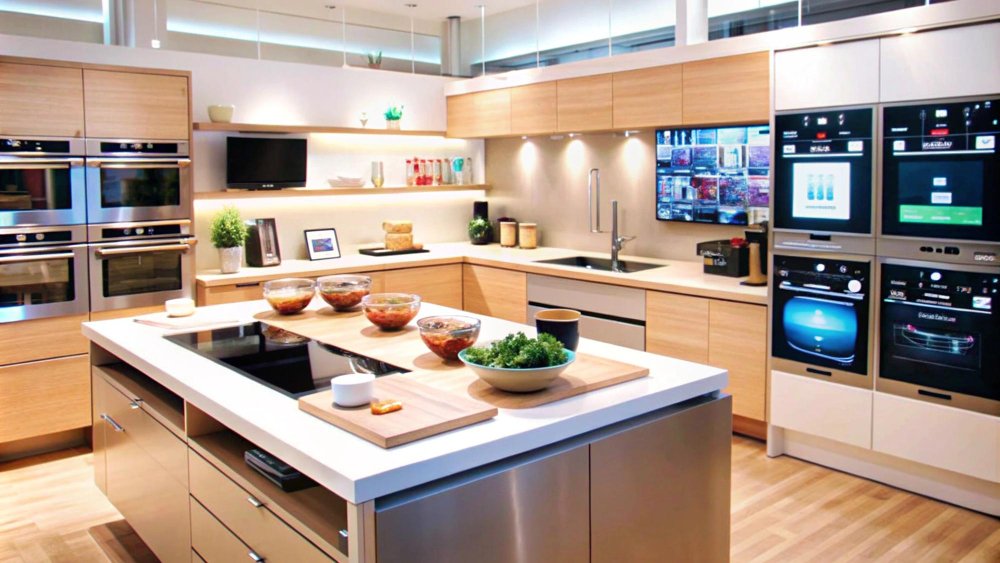The modern kitchen has evolved from a simple cooking space into a hub of connectivity and convenience. With the integration of smart technology, today’s kitchens are more efficient, intuitive, and personalized than ever.
This modern kitchen remodel with connected technology guide explores how 2025’s innovations are shaping kitchen design — from voice-activated appliances to AI-driven energy efficiency.
1. The Rise of the Intelligent Kitchen
According to 2025 remodeling industry data, over 68% of kitchen upgrades now include at least one smart appliance. Homeowners are adopting technology that enhances usability while maintaining elegant design.
Top Smart Additions:
Smart ovens that preheat automatically based on your recipe app.
Wi-Fi–enabled refrigerators that track expiration dates and grocery lists.
Voice-controlled faucets for hands-free operation.
Integrated lighting systems synced with natural circadian rhythm.
The goal is simple: convenience without clutter, technology that blends seamlessly into modern design.

2. Key Design Themes in 2025
Smart technology is most effective when it supports the flow and aesthetic of the home.
| Trend | Description | Design Impact |
|---|---|---|
| Minimalist Integration | Hidden screens and touch controls | Clean, seamless appearance |
| Zoned Workspaces | Smart appliances grouped by function | Improved workflow efficiency |
| Sustainability Focus | Energy-tracking devices and efficient sensors | Lower utility costs and carbon footprint |
| Hybrid Surfaces | Charging countertops and built-in scales | Multi-purpose use |
Homeowners are now blending innovation with visual simplicity — achieving both function and beauty.
3. Smart Countertops and Surfaces
The next generation of countertops isn’t just beautiful — it’s interactive.
Features include:
Wireless charging pads embedded beneath stone or quartz surfaces.
Induction cooking zones integrated directly into countertops.
Smart weight sensors that assist with portioning and baking accuracy.
Manufacturers are partnering with design studios to bring these concepts into real homes — merging digital performance with traditional craftsmanship.
4. Connectivity Meets Luxury
Today’s homeowners expect their technology to feel premium. That’s why high-end remodels are pairing sleek materials with advanced functionality.
Surfaces like high-end kitchen renovation solutions combine timeless design with integrated smart systems — motion lighting, temperature-controlled drawers, and AI-assisted cooking.
In luxury design, technology enhances the experience without taking over the space. Think of it as “invisible intelligence” built into every surface and appliance.


5. Data, Energy, and Sustainability
Smart kitchens aren’t just about convenience — they’re about smarter resource management.
2025 Highlights:
Energy-efficient dishwashers and induction cooktops reduce usage by up to 35%.
Water-monitoring systems detect leaks and optimize consumption.
AI analytics track appliance use and recommend lower-cost operation times.
Sustainability is no longer an option; it’s built into every smart system’s core design.
6. ROI and Resale Impact
| Upgrade | Average Cost | ROI | Homebuyer Appeal |
|---|---|---|---|
| Smart Refrigerator | $2,800–$5,000 | 70–80% | Very High |
| Voice-Controlled Faucet | $400–$1,200 | 85–90% | High |
| Connected Lighting | $800–$2,500 | 80% | High |
| Smart Countertop Integration | $3,000–$7,000 | 75% | Moderate |
Homebuyers increasingly see connected kitchens as future-proofed spaces, making them a top remodeling investment for 2025.
Builder’s Notes
Modern kitchens prove that technology and design can coexist beautifully. From sleek appliances to smart surfaces, today’s upgrades create spaces that are as intelligent as they are inviting.
👉 Whether you’re planning a full remodel or a phased upgrade, consider how smart integration can elevate your daily routines — and your home’s long-term value.
